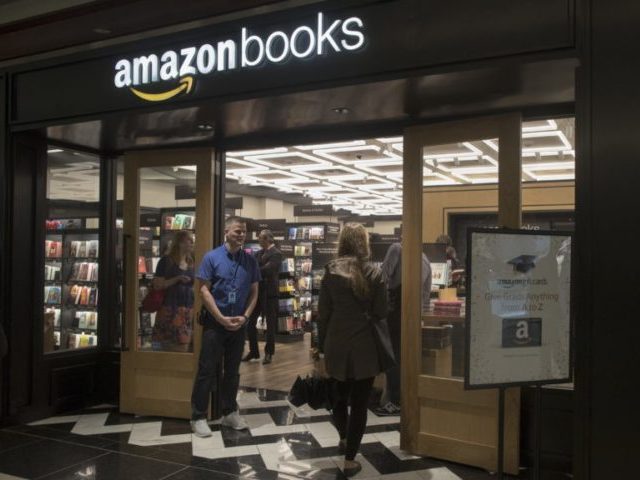Forbes deleted an article this week about closing public libraries in favor of buying books on Amazon after it sparked a backlash online.
The article, which was written by Long Island University economist Panos Mourdoukoutas, was entitled “Amazon Should Replace Local Libraries to Save Taxpayers Money.” The article argued that Amazon could fill the role of local libraries by replacing them with its own bookstores.
“Amazon should open their own bookstores in all local communities. They can replace local libraries and save taxpayers lots of money, while enhancing the value of their stock,” Mourdoukoutas wrote.
“Libraries slowly began to service the local community more,” he added. “Libraries introduced video rentals and free internet access. The modern local library still provides these services, but they aren’t for free. Homeowners have to be financed by taxpayers in form of a ‘library tax.’ It is usually added to school taxes, which in some communities are already high.”
The article sparked an immediate backlash and Forbes promptly removed it from their site. In a statement, a Forbes spokesperson said that the article was removed because it was outside of the contributor’s area of expertise.
“Forbes advocates spirited dialogue on a range of topics, including those that often take a contrarian view,” the spokesperson said. “Libraries play an important role in our society. This article was outside of this contributor’s specific area of expertise, and has since been removed.”
Angry tweets responding to the article’s author garnered thousands of likes on Twitter.
It is unclear why Mourdoukoutas’ article and the resulting backlash prompted Forbes to act so quickly. In the age of Internet journalism, bad opinions are often met with swift and persuasive rebuttals. Disagreements are best had when each party has an opportunity to express their opinion. Moreover, it’s important that no one fears that the mere expression of their opinion will result in brigading and censoring of their words.
Censorship issues aside, many critics have pointed out that the closure of public libraries would have the strongest impact on low-income families. Paul Guequierre, director of communications for the Urban Libraries Council, explained why this decision would hit low-income Americans the hardest. “The communities that would be affected the most would likely be low-income people, immigrants, and, really, the most marginalized among us,” he said. “[People] don’t have to buy a cup of coffee at the library.”
An archived version of the original Forbes article can be read here.

COMMENTS
Please let us know if you're having issues with commenting.